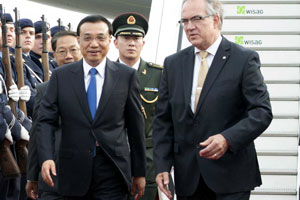'Comfort women' urges Japan to apologize as survivors' time running out
(Xinhua) Updated: 2014-10-27 11:32In the Philippines, a total of 174 cases of victims of the Japanese wartime sex slavery system were found by the Lila Pilipina, a Filipino organization of survivors of comfort women during World War II, since it was established in 1994, according to Rechilda Extremadura, president and executive director of the women's rights group.
"Of the 174 cases, only 97 are still alive, and only four of them could testify as the rest of them are too old to recall the past," Extremadura told Xinhua in the same interview with Reyes, adding they have been fighting for 20 years but are afraid that they might fail to help the victims, because of the limited time remaining for the survivors.
Japanese Prime Minister Shinzo Abe takes a very firm stance that compensation will be never offered, the women's rights activist said, adding "even the UN said it (comfort women) is a war crime and gave suggestions to the Japanese government, but it maintains its uncompromising stance of avoiding a political resolution."
"That is what we are afraid of because it will happen again. Without resolution, without acceptance (to compensation), nobody can say it won't happen again...History has proven it again and again. A responsible government should deal with the issue sincerely with the international community, but the Japanese government has no such sincerity," she told Xinhua.
Extremadura said the Kono Statement is not the final word and is open to new evidence, criticizing a recent review released by the government here to reinvestigate how the statement was compiled, stating it is too narrow and should include cases in the Philippines, Indonesia, China and all other regions occupied by Japan during the war.
As the Kono Statement was compiled based on about a dozen Korean victims, the review only reinvestigated the Korean cases and concluded that no evidence was found that can prove the women were "forcibly recruited."
All Filipino victims found by Lila Pilipina testified that they were forcibly taken, Extremadura said, adding no case said they received payment for sexual services, referring to an absurd assertion here in Japan that comfort women were the equivalent of prostitutes and were well paid.
"I don't think the Japanese government ever heard about our cases, it only focuses on the Korean cases and said they found nothing that can prove forcible recruitment... it remains a question mark as to why it never mentions the Philippines, Indonesia, the Netherlands and China?"
In fact, even if in the Korean cases, the Kono Statement mentions that many cases were against women's will. "The Korean Peninsula was under Japanese rule in those days, and their recruitment, transfer, control, etc., were generally conducted against their will, through coaxing, coercion, etc.", according to an English version of the 1993 statement.
The English version on the Japanese Foreign Ministry's website, which, however, was labeled "unofficial translation", goes on to say that Japan "hereby reiterate our firm determination never to repeat the same mistake by forever engraving such issues in our memories through the study and teaching of history."
"The Government of Japan shall continue to pay full attention to this matter, including private researched related thereto." it added.
Extremadura, meanwhile, also urged the Philippine government to act tangibly to help the survivors and to negotiate with the Japanese government on compensation to the living victims, rather than accepting the statement.
She said her group sought dialogue with the congress and every president, including current Philippine President Benigno Aquino III, but no progress was made, although the government is very aware of the comfort women issue.
"In Japan, civic groups are strong, but the government here does not give them a chance," Extremadura said, adding that the Japanese government has to change and be responsible, or Japan can not be forgiven by the international community.
Without justice to victims like Reyes, "how can I forgive Japan, " Extremadura concluded.
- China voices concern for Japan's denial of 'comfort women' enslavement
- China's 'comfort women' in new book
- Japan 'failed' on 'comfort women' issue
- UN requests Japan to redress 'comfort women' issue
- S.Korea issues arrest warrant for Japanese politician for defaming 'comfort women'
- 'Comfort women' station in Nanjing to get city protection
- Japan urged to properly handle 'comfort women' issue










